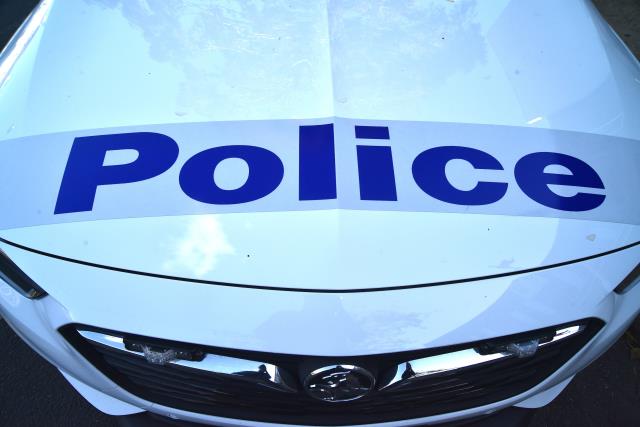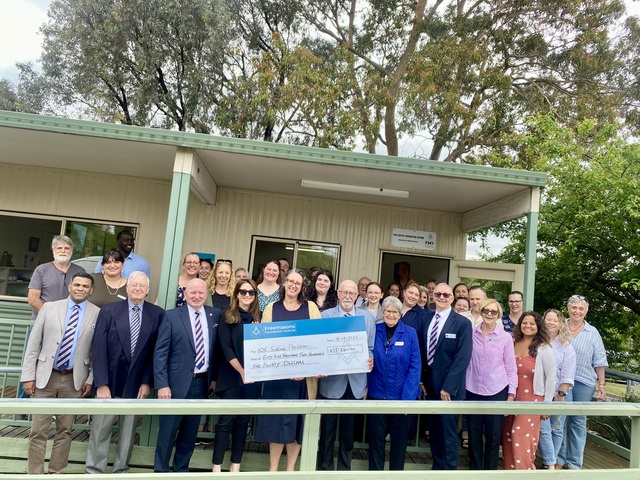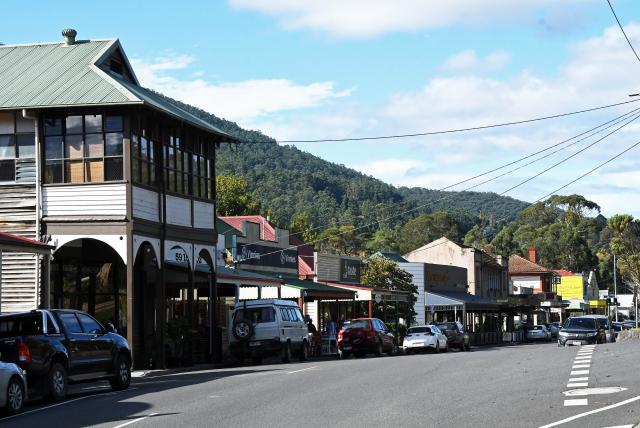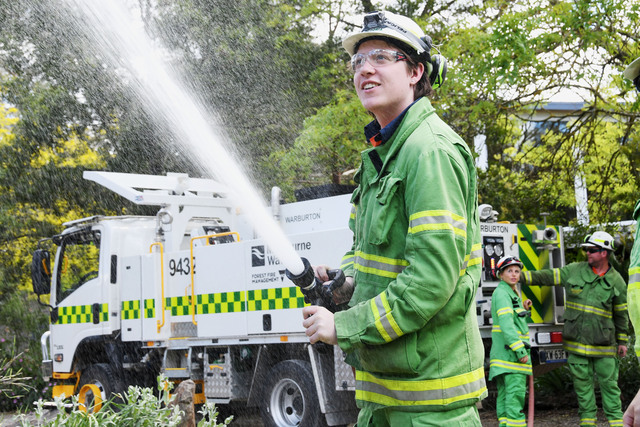By Dion Teasdale
THE coronial inquest into the deaths of two Healesville paramedics has found that driver error was the cause of the collision that claimed their lives.
Coroner Phillip Byrne handed down his findings into the deaths of paramedics Robert Bland and Phillip Oakley at an informal hearing at the Coroner’s Court on Thursday, 16 February.
Mr Bland and Mr Oakley were killed at about 3.30pm on 2 January, 2004, when the ambulance Mr Bland was driving crashed on a bend on the Black Spur, while responding to a code one emergency call, which was later found to have been unnecessary.
The ambulance union, Ambulance Employees Australia (AEA), had called on the coroner to find that mechanical faults in the ambulance, inadequate driver training and inappropriate dispatch protocols were causal factors.
However, Mr Byrne accepted evidence from Victoria Police’s Major Collisions Investigation Unit (MCIU) that vehicle faults, the condition of the road and driver training did not contribute to the accident.
“There is no credible evidence to support the contention that mechanical faults caused or contributed to the accident,” Mr Byrne said.
“The reality is that competent, even highly skilled drivers, are liable to make errors in judgement and that in my view is precisely what occurred here.”
Mr Byrne also said he was unable to conclude that the priority dispatch code allocated to the emergency call the paramedics were responding to was a factor in their deaths.
He handed down two recommendations as part of his findings.
Mr Byrne urged the Metropolitan Ambulance Service (MAS) to undertake an ‘arms’ length’ review of practices and protocols concerning emergency dispatch, and to investigate the development of a database that accurately collects crash data and traffic infringements.
Ambulance Employees Australia general secretary, Steve McGhie, said the union was not dissatisfied with the findings, despite only one of its recommendations being included in the coroner’s findings.
“We appreciate that the coroner heard a lot of evidence in this case and we are satisfied with the two recommendations he has handed down,” he said.
Mr McGhie said the AEA’s main concern was that the coroner didn’t recommend improvements to driver training.
“We believe this matter requires further attention and action and we’ll continue to discuss it with the MAS,” he said.
Mr McGhie said he would be seeking a meeting with the MAS to discuss the coroner’s recommendations.
“We will be keeping the heat on, and we will continue our scrutiny of the dispatch protocol to make sure these things are acted on,” he said.
MAS acting chief executive officer, Ian Patrick, welcomed the coroner’s findings, but said they did not remove the tragedy from the situation.
“It is hard to be happy with the outcomes of any coronial inquest. The deaths of these two men is a tragedy and the findings don’t lesson the tragedy,” he said.
Mr Patrick said the MAS would implement a new call-taking system after the staging of the Melbourne 2006 Commonwealth Games and said the service was committed to making improvements.
“We are always working to strike the right balance between having to respond to the needs of the community and protecting the safety of paramedics at the same time,” he said.
Mr Patrick said the MAS already had a number of databases that collate crash history, and would work to streamline them.
Mr Patrick also said he believed the coroner’s findings meant there was further closure for the paramedics and families affected by the deaths of Mr Bland and Mr Oakley.
“We’ll always remember them as valuable members and our thoughts are with the families and other members touched by the tragedy.”
Both families declined to speak to the Mail about the accident.
Driver training call
Digital Editions
-

Growth strong in community football
Football participation across Victoria continued to grow in 2025 surpassing 250,000 registered participants to mark an all-time record for the state. Victorians accounted for more…





